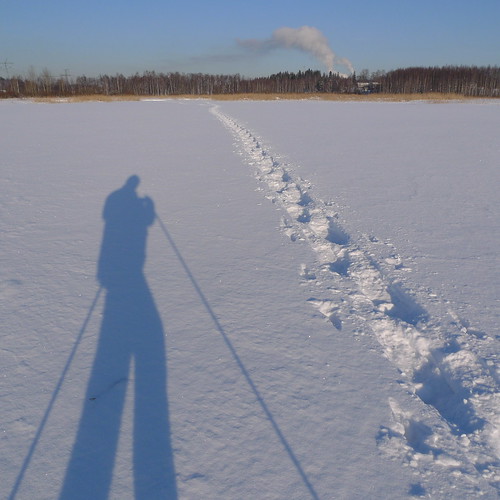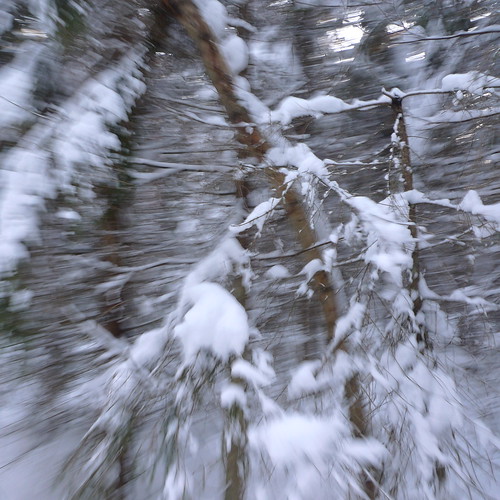Here are six sunny photographs. I went skiing today. An excellent day for skiing, as the temperature rose to -11 °C during afternoon. During nights we have had -25 °C or even colder.
I have been listening to the music of Tapio Rautavaara (1915-1979), a Finnish singer and movie actor. He was also quite an athlete, and became the Olympic Champion in the javelin at the 1948 Summer Olympics in London. And not only that, he also got the gold medal in the Finnish team in the archery World Championships of 1958.
But coming back to the discussion about happiness - was Rautavaara happy? I don't know, but I think it doesn't matter much. He was doing things, and that is what matters. And his music, although it is dated and "traditional", still lives on.
By the way, Cedric Canard wrote well about the topic of happiness in connection with photography.
But how to think about life (or photography) if happiness is not anything to aim for?
I have been reading the book The Social Construction of Reality, written by Peter L. Berger and Thomas Luckmann in 1966. I must admit that I have been rather critical of sociology; maybe that is a natural trait in anyone who has studied physics. However, this book was good, and not only that, it was clearly written and based on real-life empirical approach and observations. So, I need to change my opinion about sociology: all of it is not postmodernistic word-games, some of it is relevant to the world and to life.
The recent upheavals in the Arabic world serve as an excellent illustration of the topics in the book. When the social structures and institutions lose their role and become irrelevant, a great deal of stress is put on the people.
We humans are different from other species because of our undeveloped instincts: we are adaptable to different environments. But to compensate our instinct handicap, we need routines to cope with out daily life. Otherwise we get very, very stressed.
"There are a thousand ways to build a canoe." To cope with the abundant choices, we need to select one approach, and work with that. Routines save us from anarchy.
I feel this applies also to photography. I have developed an almost instictive approach in using the Panasonic LX3. This helps to reduce stress, to such a degree that something quite complicated - taking a photograph - becomes a way of reducing stress from other areas of life.
Routines make creativity possible. One can submerge oneself in the taking of photographs.
One more observation based on thoughts from the book. I feel there are several very different "worlds" of photography. One such is the world of galleries and Art. Another is the world of taking photographs in your daily life to have something interesting to do, and to learn a little bit of what the world is like and what you are like in relation to the world.
I don't think these two worlds of photography overlap at all. Better be silent, then?
Is it supposed to look like that?
1 hour ago









3 comments:
"Another is the world of taking photographs in your daily life to have something interesting to do, and to learn a little bit of what the world is like and what you are like in relation to the world."
Juha, this can be done on a casual level, or at a level of great intensity. Gary Winograd is famously quoted saying, "I take pictures to see what things look like as pictures." He did so at a level that could be seen as pathological in its intensity. While perhaps not universal, exploring one's relationship with the world can be at the heart of an artist's work in any medium. That doesn't mean it will get into a gallery, but it won't necessarily keep it out, either.
Juha, thanks for the link back.
I feel much the same as you about routine. Routine allows for practice and practice, as you pointed out before, makes for improvement. The added benefit of reduced stress also means that when life throws a curved ball at you it's easier to stay focused. The thing is routine is rarely seen in a positive light. It's thought of as boring and associated with being in a rut. I dare say that the media encourages this view telling people to look for the promise of happiness in gadgets, holidays, sex partners, whatever.
But routine isn't one long endless slog; it's an infinite number of moments each different from the last. Photography, specially in the manner that you do it, highlights this fact. It takes a little practice to see the uniqueness of each moment and photography is a great way to practice this skill.
As for your comment about the "different 'worlds' of photography" I have to agree with Carl. I don't see that the two worlds you mention are necessarily mutually exclusive.
@Carl: Gary Winograd is a good counter-example indeed.
@Cedric: Maybe it is the age which is talking when one is becoming fond of routines...
Post a Comment